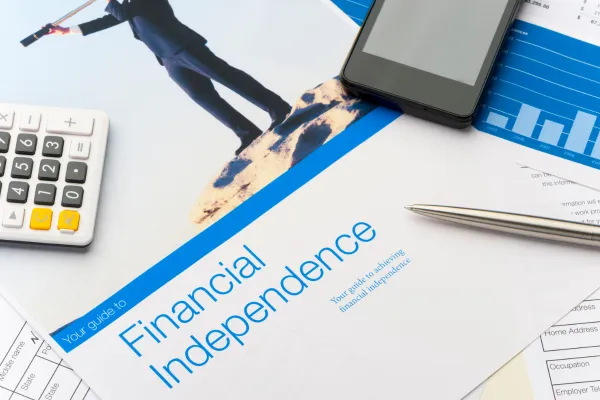Welcome To The SYL Blog & Podcast

Empowering Busy Professionals to Thrive in Every Aspect of Life
"Fueling Your Path to Success, One Sip & One Conversation at a Time."

4 Weeks to Freedom: The Road To Financial Independence
Financial independence is highly desirable. Yet, for some reason, it seems to elude many of us. You've likely tried your hand at many different approaches, yet none have been able to give you the anticipated results.
The good news is that financial independence can be achieved.
By making certain adjustments to your life, you'll find yourself starting to build financial independence. So put aside your plan to work harder or put in longer hours and read on to find the answers you've been searching for.

4 Weeks to Freedom:
The Road to Financial Independence
Following these steps will lead you to financial independence:
1. Eliminate the word "credit" from your vocabulary. Having a good credit score can open up opportunities for you. But living in the credit culture also puts you in a stressful situation.
♦ If you're seeking financial independence, start by doing away with credit.
IF YOU ARE AN IMPULSIVE SPENDER!!!🤑💰💸
♦ You probably have a few credit cards in your wallet. Put them in a place where you don't have easy access to them! If that makes you nervous, only keep one for emergencies. Just ensure the credit limit is somewhat in line with the amount of cash you've saved.
♦ If you're unable to purchase something with cash, it probably means you can't afford it. Live within your means.
♦ Avoid borrowing for frivolous expenditures. Those are usually the hardest loans to repay.
2. Treat needs and wants differently. Take a look at your life. How many of the things you have or do can be considered necessities? If you're honest with yourself, you'll realize you're piling on unnecessary expenses, focusing on your wants rather than your needs.
♦ Making a list of the things you require for survival is necessary for financial independence.
♦ Everything that didn't make the list can easily be eliminated from your monthly expenses. Why put that amount of burden on yourself? It's time to give your finances a break.
♦ The things you do to maintain a calm existence can be added to your list of necessities. For example, your yoga class may be necessary because of the physical and emotional benefits. But you can reduce monthly expenses by watching a YouTube yoga video and working out at home.
3. Tap into your skill set. Are you working in a field that you love and maximizes your skills? If you think about it, you'll realize that you're most productive when doing something you like or are good at.
♦ Think about your current job. Is it bringing out the best in you? Or, can you earn more and increase your productivity in another field?
♦ Perhaps you can pursue a transfer to another department at your current place of employment. Or maybe you want to move on to something completely different.
4. Save money at all costs. Even if it's a dollar at a time, put aside money for your savings account each month. Learning to save helps you develop an understanding of its importance.
♦ One way to save is to request a salary deduction each month. That amount can go to an investment account, which limits your access.
♦ Many companies have 401(K) or 403(B) accounts that can get you started with a savings plan. Look into what's available at your place of employment.
After reading this, you'll likely realize it's much easier than you think to make some simple financial adjustments. Give yourself four weeks of this routine, and then assess how it's going. You'll feel encouraged by the positive results!
Want to learn more about what you can do to become financially independent:
Here are some books we recommend:📚
Click our **Amazon affiliate link below:
📕The Psychology of Money: Timeless lessons on wealth, greed, and happiness
by Morgan Housel
https://amzn.to/3NVCpfY
📕Your Money or Your Life: 9 Steps to Transforming Your Relationship with Money and Achieving Financial Independence by Vicki Robin & Joe Dominguez
https://amzn.to/3RoD6RG
📕Rich Dad Poor Dad: What the Rich Teach Their Kids About Money That the Poor and Middle Class Do Not! by Robert T. Kiyosaki
https://amzn.to/3uwnUIw
📕The Total Money Makeover: A Proven Plan for Financial Fitness by Dave Ramsey
https://amzn.to/3uEaqdN
**Amazon Affiliate Links are included in this blog post - as an Amazon Associate, we earn from qualifying purchases at no added cost to you.

